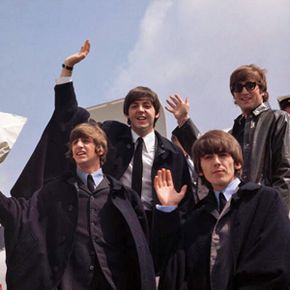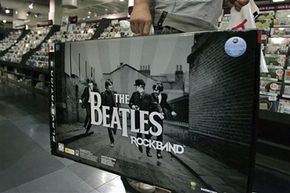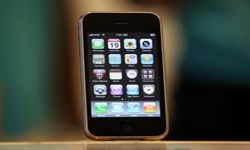When The Beatles signed with EMI back in 1962, Steve Jobs was about seven years old. Neither EMI nor Jobs had any idea that decades later, they would be locking horns over the idea of playing an entire catalog of Beatles albums from a tiny battery-powered box you can stick in your pocket.
The Beatles enjoyed a now-legendary whirlwind success in the mid-1960s, including eight albums and several chart-topping hits over a five-year span. In that time, The Beatles learned the ups and downs of the recording industry from a business perspective. Then, in 1968, they began releasing albums under their own organization: Apple Corps (a pun title pronounced like "apple core"). Four decades and 24 albums later, Apple Corps and EMI are the major players in the rights to sell The Beatles' recordings.
Advertisement
Steve Jobs also enjoyed a legendary success, co-founding Apple Computer in 1976. The company grew at breakneck speed through the 1980s, and it eventually became one of the largest and most innovative computer companies in the world. Today, Apple offers iTunes, a service for purchasing music that you can download from the Internet directly onto your computer and copy to your Apple iPod.
For a long time, The Beatles' music was conspicuously absent from the iTunes Store. Apple has clashed time and again with Apple Corps over the years, long before the advent of iTunes. Each time Apple announced new products, rumors swirled that all parties had worked out their differences and The Beatles would come to iTunes. On Nov. 16, 2010, Apple announced that The Beatles would be coming to the iTunes Store after all [source: Ogg].
Read on to get to the core of Apple's bumpy history with Apple Corps, EMI and artists who have a skeptical eye toward iTunes and downloadable media.
Advertisement


